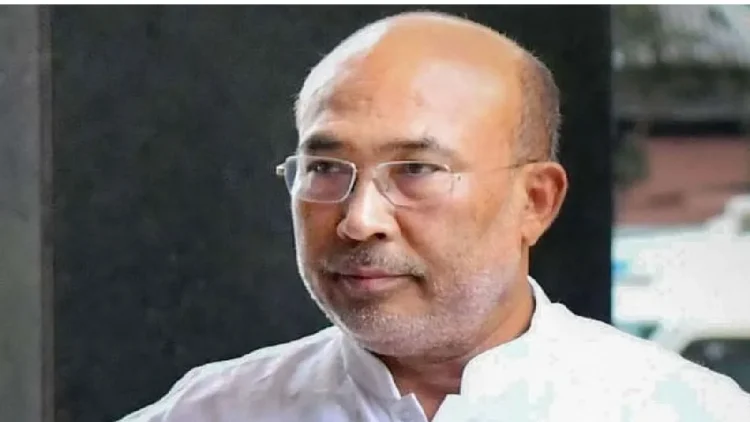New Delhi. President’s rule has been implemented in the northeastern state of Manipur. N. from the post of Chief Minister After Biren Singh resigned, the central government has decided to impose President’s rule there. Notification in this regard has also been issued. Chief Minister Biren Singh was on the target of the opposition for the ongoing caste violence in the state for a long time and death of many people. Biren Singh also publicly apologized to the people of the state during a press conference at his government residence in Imphal on 31 December 2024.
President’s Rule Imposed in Manipur.
Manipur CM n biren singh resigned from his post on 9th February. https://t.co/vgeov0xirt pic.twitter.com/S9wyma13Ki
– ANI (@ani) February 13, 2025
Biren Singh had said that the year 2024 has been very unfortunate. For what is happening in the state from last May 3 till today, I want to apologize to the people of the state. Many people have lost their loved ones in the violence in the state. Many people had to leave their home, I regret it and I apologize. Although he had hoped that the situation would become normal in the new year, but suddenly on February 9, he resigned as Chief Minister. After this, the exercise for the new Chief Minister started in the state, but in the meantime, the Central Government issued a notification to implement President’s rule.
What is President’s rule?
When the government in a state is unable to run according to the provisions of the Constitution, then the President’s rule is recommended by the Central Government there. The decision to impose President’s rule is taken according to Article 356 of the Constitution. After the implementation of President’s rule, there are many changes in the governance of the state. The Governor of the state as his representative is given the responsibility of assuming administrative responsibility by the President. The Governor works as per the instructions of the Center. President’s rule can be implemented for a maximum of 6 months, but it can also be extended for up to 3 years if permission from Parliament.






